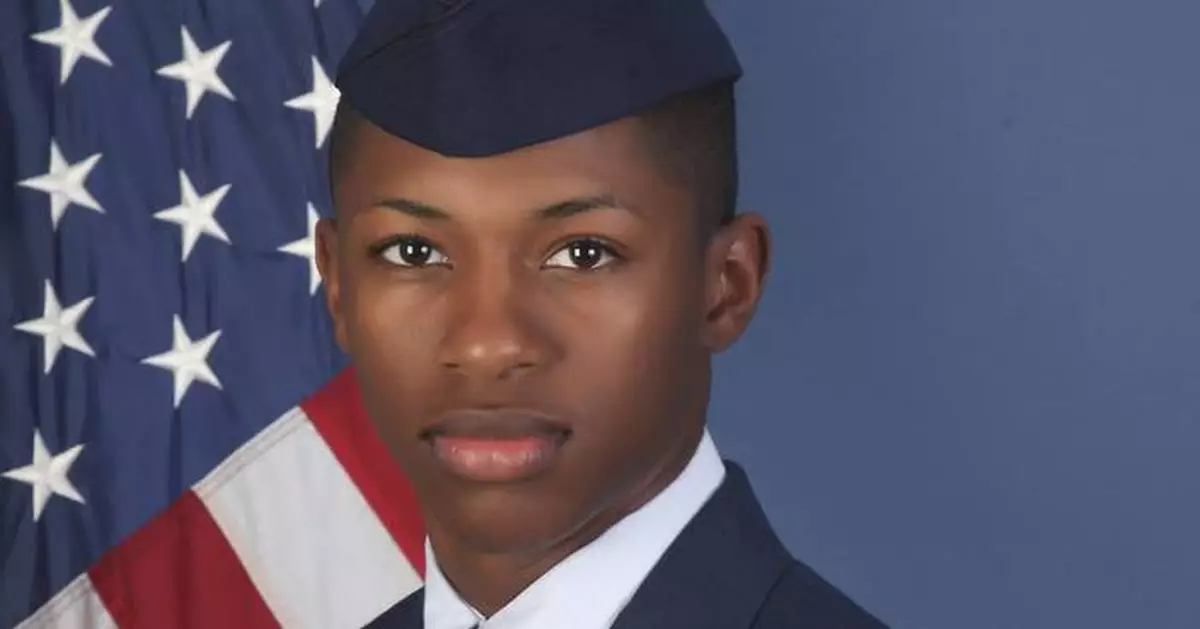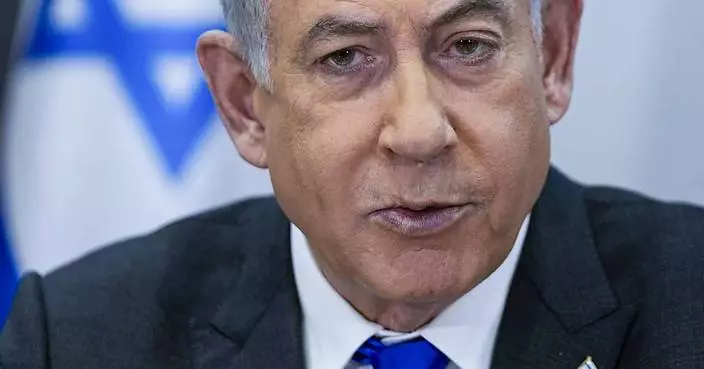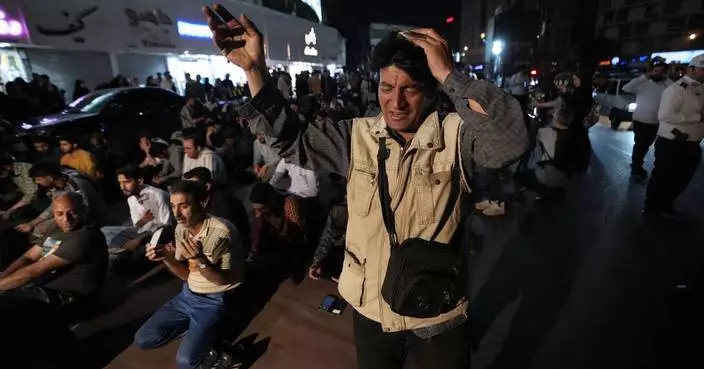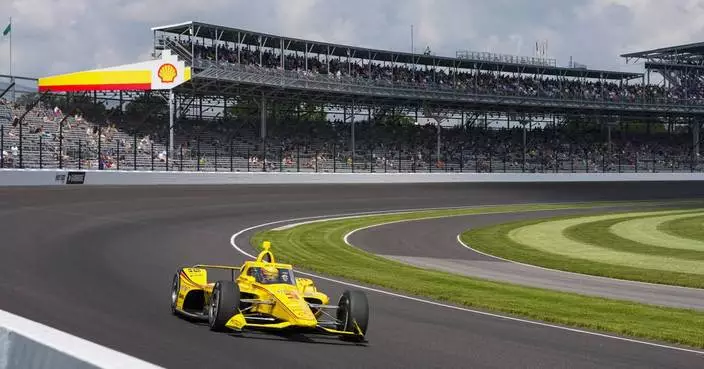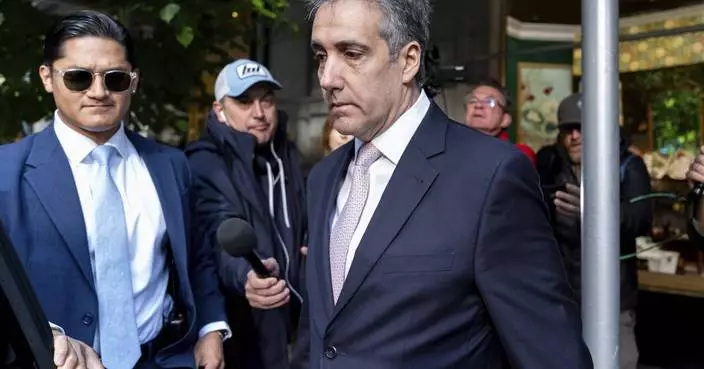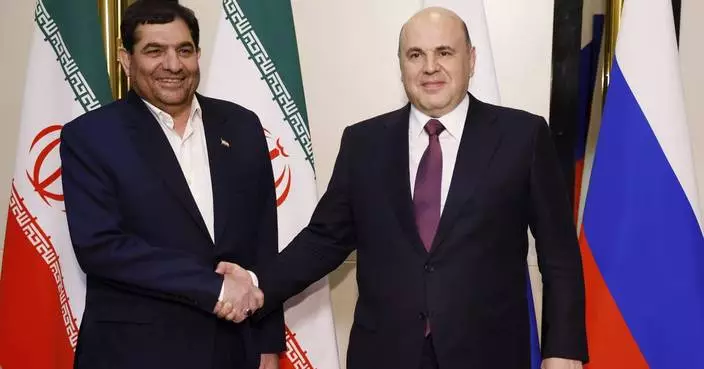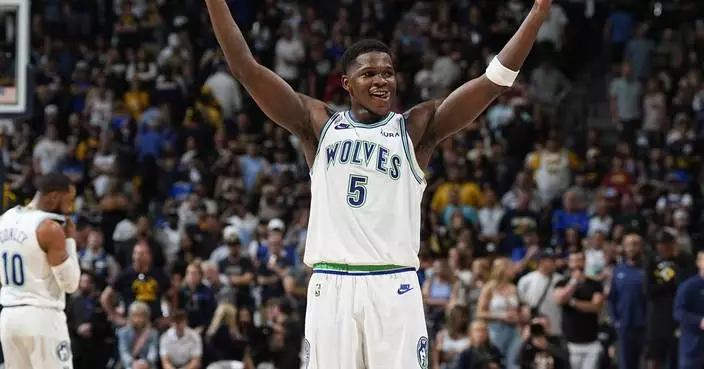The fatal shooting of a U.S. Air Force airman at his off-base apartment in the Florida Panhandle by a sheriff's deputy brings to mind other instances of Black people being killed by law enforcement in their own homes as they're going about their day.
Senior Airman Roger Fortson, 23, was killed on May 3 in his apartment in Fort Walton Beach. Body camera video viewed by reporters Thursday shows the Okaloosa County deputy arriving at the apartment building and speaking to a woman who described someone hearing an argument. The deputy then went up an elevator and walked down an outdoor hallway.
On the body camera video, the deputy can be heard yelling that he was from the sheriff’s department and knocking, while also stepping seemingly out of view of the door. The video then shows Fortson opening the door with what appears to be a gun in his hand pointed toward the ground.
The deputy quickly fires several shots, yelling for Fortson to drop the gun after he is already on the ground wounded.
Attorney Ben Crump, who is representing Fortson’s family, has said Fortson was talking to his girlfriend on FaceTime and grabbed his gun because he heard someone outside his apartment.
Crump said in a Thursday statement that “we remain adamant” that law enforcement went to the wrong apartment. The sheriff rejects that assertion.
Here are some other cases:
Botham Jean, a 26-year-old Black man, was fatally shot in 2018 by a white police officer who mistook his Dallas apartment for her own.
Amber Guyger was still in uniform after a long shift when she walked up to Jean’s apartment — which was on the fourth floor, directly above hers on the third — and found the door unlocked.
Jean, an accountant from the Caribbean island nation of St. Lucia, had been eating a bowl of ice cream when Guyger entered his home and shot him. He was unarmed.
Guyger, the former officer, was found guilty in 2019 and sentenced to 10 years in prison.
Atatiana Jefferson, a 28-year-old Black woman, was fatally shot through a window at her home in 2019 by Aaron Dean, a white officer, as he responded to a nonemergency call about the door to her Fort Worth, Texas, home being open.
Body camera footage showed that Dean and a second officer didn’t identify themselves as police at the house. Both testified at Dean's trial that they thought the house might have been burglarized and quietly moved into the fenced-off backyard looking for signs of forced entry.
Jefferson and her then-8-year-old nephew, Zion Carr, were up late playing video games. They'd left doors open to vent smoke after earlier burning hamburgers.
Carr testified that Jefferson took out her gun because she believed there was an intruder in the backyard. Dean fired a single shot through the window a split-second after shouting at Jefferson, who was inside, to show her hands.
Dean was found guilty of manslaughter in 2022 and the former officer was sentenced to nearly 12 years in prison.
Aiyana Stanley-Jones, a 7-year-old Black girl, was fatally shot inside her family's Detroit home in 2010 by police who burst into the wrong unit of a duplex while looking for a man suspected in a killing that had been committed days earlier. The suspect was eventually arrested in the second-floor unit of the duplex.
Aiyana was shot in the head while sleeping on a couch.
Joseph Weekley, a member of an elite police unit, was the first officer through the door of her home. Weekley, who is white, said he accidentally fired his gun during a struggle with Aiyana’s grandmother.
Weekley was charged with involuntary manslaughter but his first trial ended without a verdict in 2013 and his second ended in 2015 with a hung jury. During the second trial, a judge dismissed that charge.
Breonna Taylor, a 26-year-old Black woman, was killed by police officers who knocked down the door to her apartment in Louisville, Kentucky, in 2020 while executing a drug search warrant that was later found to be flawed.
Taylor’s boyfriend, Kenneth Walker, fired a single shot that hit one of the officers as they came through the door of the apartment, and officers returned fire, striking Taylor in the apartment hallway multiple times.
Walker told police investigators that he heard knocking but did not hear police announce themselves. He said he was “scared to death,” so he grabbed his gun and when the door was knocked down, he fired a shot.
Officers found no drugs in Taylor’s apartment.
Former Louisville officer Brett Hankison, who is white, was found not guilty in 2022 on state charges that he endangered her neighbors when he opened fire. Some of his shots flew into a neighboring apartment, but none of them struck anyone.
Last year a jury deadlocked over federal civil rights charges that Hankison used excessive force that night. Federal prosecutors have said they intend to retry him.
Three other former officers involved in drawing up the warrant were charged in a separate federal case. One of them, Kelly Goodlett, has pleaded guilty to helping falsify the warrant. She's expected to testify against the other two in the upcoming trial.
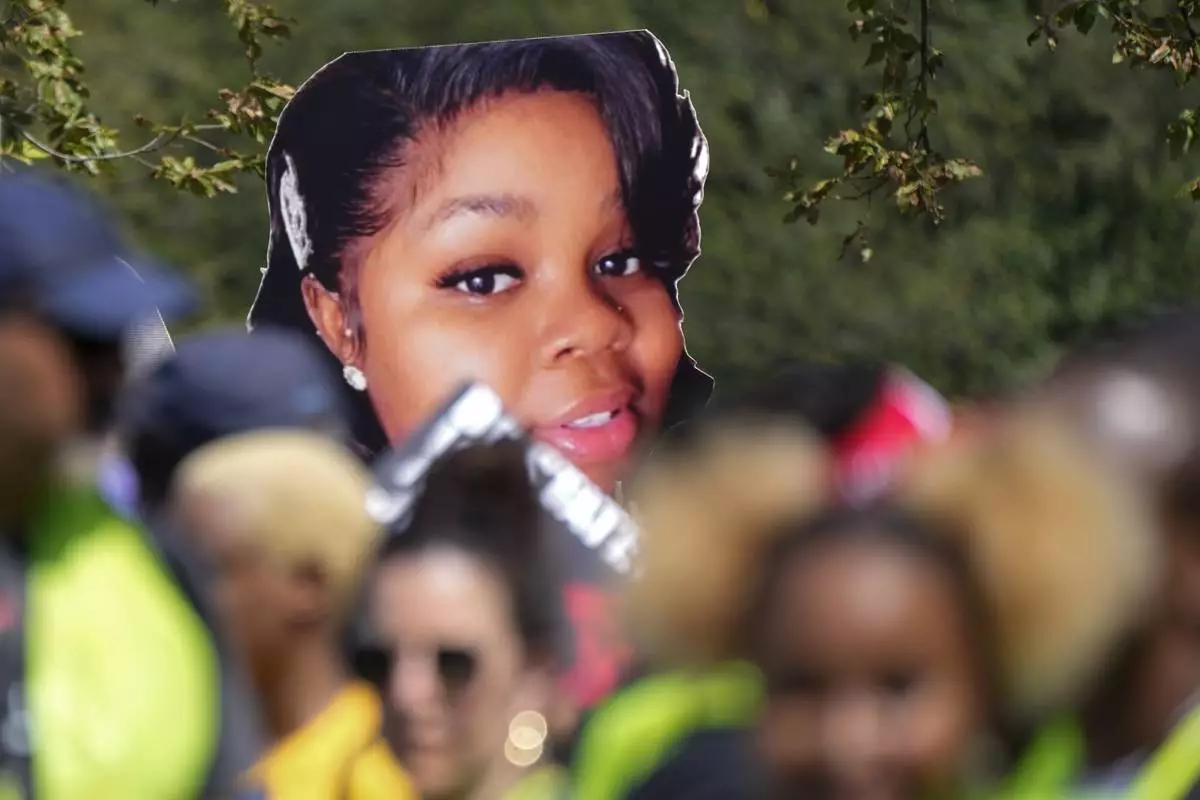
FILE - An image of Breonna Taylor, a 26-year-old Black woman who was fatally shot by police in her Louisville, Ky., apartment, is seen as people march to honor the 60th Anniversary of the March on Washington, Saturday, Aug. 26, 2023, in Washington. (AP Photo/Jacquelyn Martin, File)
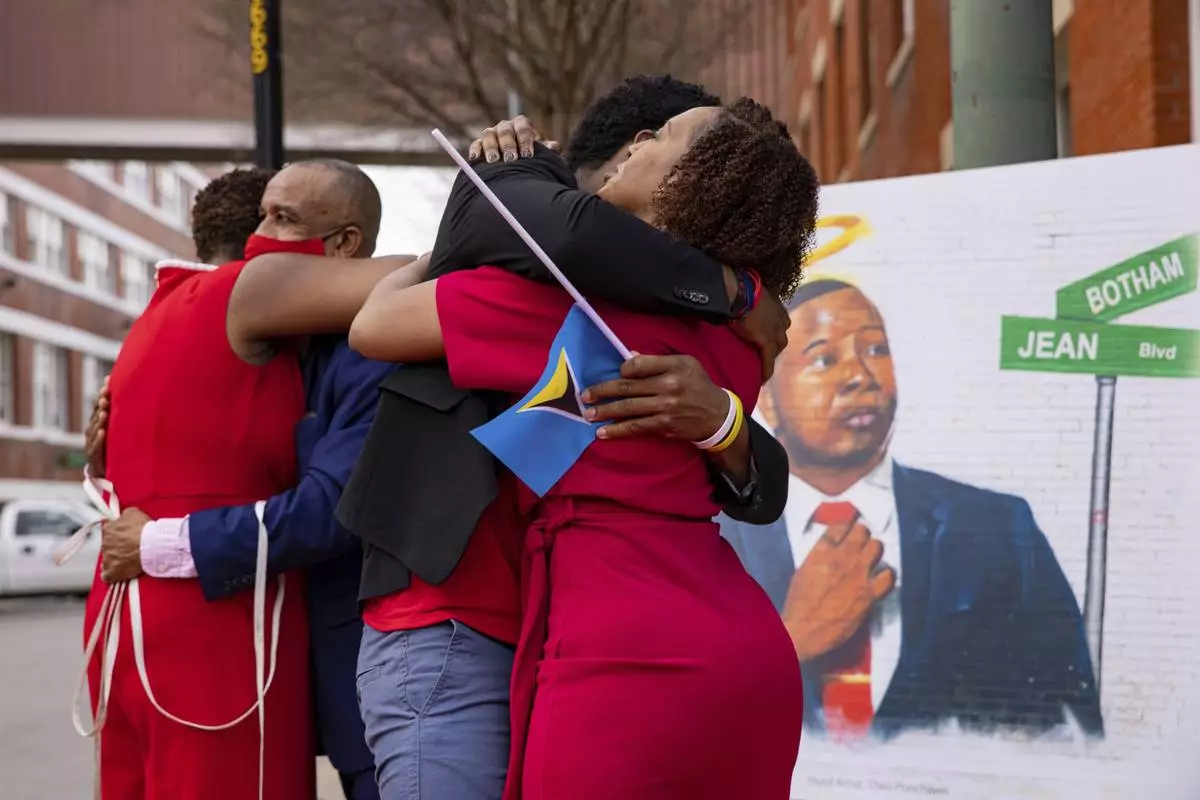
FILE - The family of Botham Jean hug after unveiling the street sign for Botham Jean Boulevard which is named after their slain son and brother in Dallas on Saturday, March 27, 2021. (Juan Figueroa/The Dallas Morning News via AP, File)
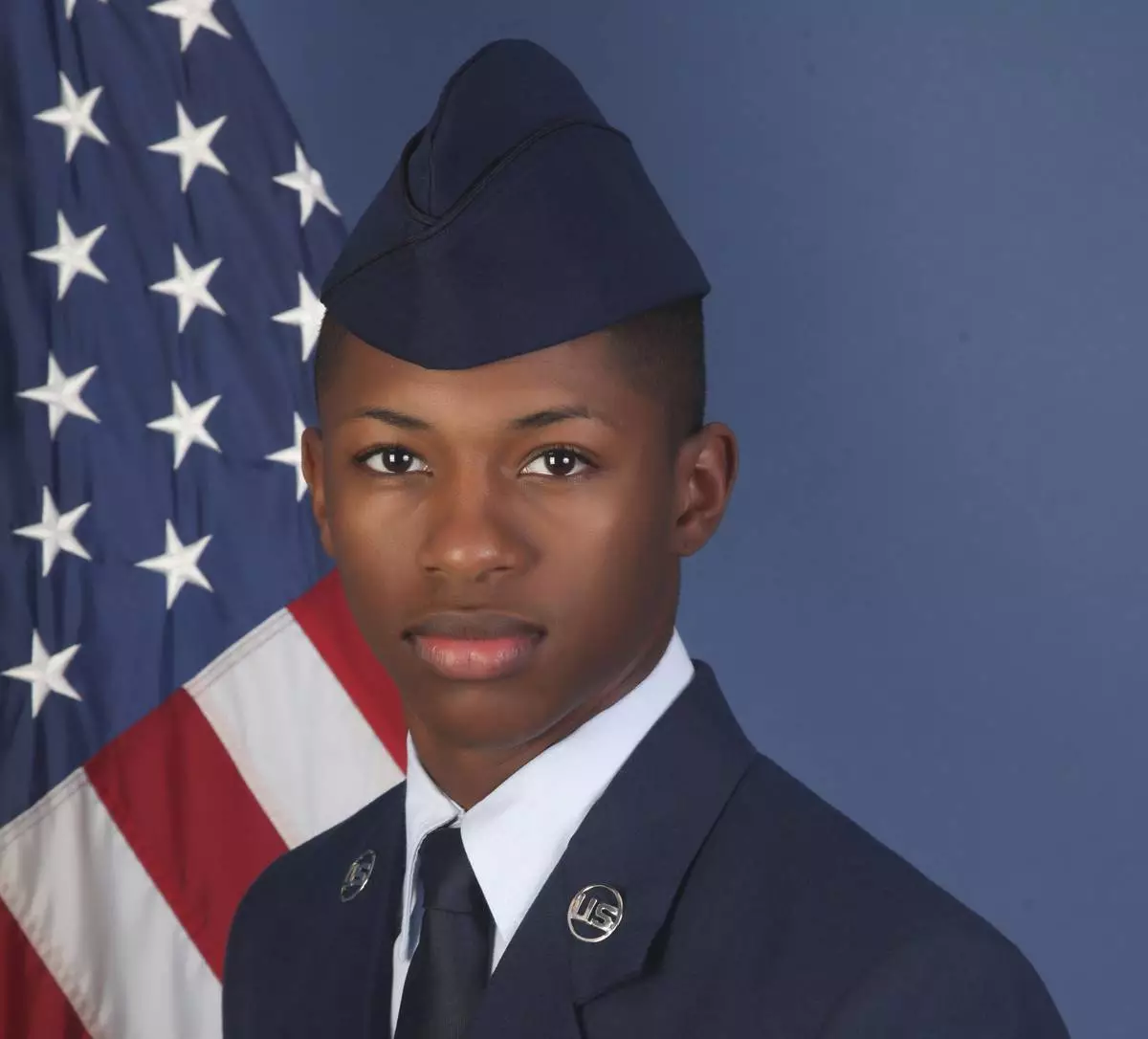
FILE - This photo provided by the U.S. Air Force, shows Senior Airman Roger Fortson in a Dec. 24, 2019, photo. (U.S. Air Force via AP, File)
NEW YORK (AP) — Donald Trump's hush money trial has entered its final stretch as the prosecution's star witness Michael Cohen returned to the stand Monday.
In his testimony last week, Cohen placed the former president directly at the center of the alleged scheme to stifle negative stories to fend off damage to his White House bid. Among other things, Cohen told jurors that Trump promised to reimburse him for the money he fronted and was constantly updated about efforts to silence women who alleged sexual encounters with him. Trump denies the women’s claims.
Monday's proceeding began with Judge Juan M. Merchan declining to broaden the scope of testimony from a potential defense witness. He echoed his pretrial ruling that the witness, if called, can give general background on the Federal Election Commission — its purpose, background and the laws it enforces — and the definitions of such terms as “campaign contribution.”
Defense attorneys resumed cross-examination of Cohen with questions about his interactions with reporters and a series of questions about his business dealings and other activities in the lead-up to the payment to porn actor Stormy Daniels.
Prosecutors have said they will rest their case once Cohen's testimony concludes, though they could call rebuttal witnesses if Trump's lawyers call their own witnesses to the stand. The defense isn’t obligated to call any witnesses, and it’s unclear whether the attorneys will do so. It also remains unclear whether Trump will testify.
Merchan said earlier in the day that closing arguments could take place the Tuesday after Memorial Day.
The trial is in its 19th day.
Trump has pleaded not guilty to 34 felony counts of falsifying business records.
The case is the first-ever criminal trial of a former U.S. president and the first of four prosecutions of Trump to reach a jury.
Currently:
— What we’ve learned so far in the Trump hush money trial and what to watch for as it wraps up
— Trump receives NRA endorsement as he vows to protect gun rights
— Trump hush money case: A timeline of key events
— Key players: Who’s who at Trump’s hush money criminal trial
— Hush money, catch and kill and more: A guide to unique terms used at Trump’s trial
Here's the latest:
Michael Cohen testified on Monday that he shelled out money to a tech firm to help boost Donald Trump’s performance in an online CNBC poll about the most famous businessmen of the last half-century.
At first, Trump was polling near the bottom “and it upset him,” Cohen said during redirect. So Cohen reached out to Red Finch, who said they could create an algorithm that would get Trump’s name “to rise and rise significantly” in the poll by acquiring IP addresses to cast phony votes.
He said Trump initially wanted to finish first, but the two decided that would be suspicious. Instead, they decided to settle for ninth. But Trump refused to pay the firm after CNBC decided to nix a second round of the poll featuring the top 10 names. Trump, Cohen testified, didn’t feel he’d gotten his money’s worth.
When he was later reimbursed by Allen Weisselberg to pay back Red Finch, Cohen kept the proceeds for himself — an act of deception that, Cohen admitted earlier in the day, amounted to stealing from the Trump Organization.
But describing his actions to the prosecutor, Cohen defended the move. “I felt it was almost like self-help,” he said.
As prosecutor Susan Hoffinger began questioning Michael Cohen during redirect on Monday, she took aim at a point that Donald Trump’s defense made during their questioning: that Cohen helped Trump and his family with some legal matters in 2017, when Cohen received $420,000 from the then-president.
The sum included reimbursement for the $130,000 that Cohen had paid Stormy Daniels, according to testimony and evidence at the hush money trial.
Prosecutors say the $420,000 in payments was deceptively logged as legal expenses to disguise the Daniels deal. Trump’s defense says Cohen was indeed paid for legal work, so there was no cover-up.
Cohen testified that he never billed for the work he did for Trump and his family in 2017. When Hoffinger asked whether the $420,000 was related at all to those 2017 legal endeavors, Cohen answered, “No, ma’am.”
The defense's cross-examination of Michael Cohen in Donald Trump's hush money trial ended with Cohen reiterating that he discussed the Stormy Daniels deal with the former president.
“Notwithstanding everything you’ve said over the years, you have specific recollection of having conversations with then-candidate Donald J. Trump about the Stormy Daniels matter?” defense lawyer Todd Blanche asked.
“Yes, sir,” Cohen answered.
“No doubt in your mind?”
No doubt, Cohen averred, and Blanche said he had no more questions.
Pushed before the morning break in Donald Trump's hush money case to describe his lucrative Trump-related side businesses, Michael Cohen told defense attorney Todd Blanche “there is a television show” in the works.
Tentatively titled “The Fixer,” the show is based on Cohen’s own life and career. A producer on his podcast is currently shopping the show to studios, but it hasn’t been picked up yet, Cohen testified.
Later asked about his recent claim that he might run for Congress because he has “the best name recognition out there,” Cohen insisted he hasn’t built his profile on Trump’s back.
“My name recognition is because of the journey that I’ve been on. Is it affiliated to Mr. Trump? Yes. Not because of Mr. Trump,” he testified.
“Well, the journey that you’ve been on,” Blanche noted, “has included near-daily attacks on President Trump.”
“My journey is to tell my story, yes, sir,” Cohen said, eventually acknowledging his frequent criticisms of Trump.
Cohen also testified he’d be better off financially if Trump isn’t convicted because it would give him more fodder for the podcasts that provide a sizeable chunk of his livelihood.
Cohen was responding to questions asking if he’d benefit financially from a conviction in the hush money case.
As he spoke, Trump looked directly at the witness box, his arm draped over his chair.
Before a morning break in Donald Trump's criminal trial, defense lawyer Todd Blanche probed Michael Cohen’s profitable new career as a media-forward Trump critic.
The ex-lawyer said he’s made about $4.4 million from his books and podcasts since 2020, the year he was released from prison to home confinement. He was freed from home confinement in 2021.
Cohen also noted that he makes some income from a real estate rental property.
Before pleading guilty in 2018 to campaign finance violations and other charges, Cohen made about $4 million in 18 months, he testified. That money came largely from corporate consulting deals, plus the $420,000 he got from Trump to reimburse the Stormy Daniels payout and a technology expense, cover taxes and provide a bonus.
Jurors in Donald Trump's hush money trial remained largely engaged with Michael Cohen’s testimony on Monday, though some appeared to be dragging as his testimony stretched into a fourth day.
Several jurors stifled yawns while peering at the witness and looking at monitors in front of them as emails and other evidence were displayed. A few continued to take notes. Others sat back and took in the testimony, occasionally peering at the gallery of reporters and public observers.
Defense attorney Todd Blanche grilled Michael Cohen on Monday about his initial public denials that Donald Trump knew about the Stormy Daniels payoff.
After The Wall Street Journal reported in January 2018 that Cohen had arranged the payout to the porn actor more than a year earlier, Cohen told journalists, friends and others that Trump had been in the dark about the arrangement.
So until April 2018, “you had told anybody who asked that President Trump knew nothing about the payment at the time?” Blanche asked.
“That’s what I said, yes,” Cohen acknowledged.
In April 2018, federal authorities searched Cohen’s home, office and other locations tied to him. Four months later, Cohen pleaded guilty to campaign finance violations and other charges and told a court that Trump had directed him to arrange the Daniels payment.
Michael Cohen testified on Monday he made $4 million from six clients — including AT&T, which was attempting to acquire Time Warner at the time — for which he was working as a consultant after Donald Trump won the 2016 election.
Another client was Columbus Nova, an investment management that paid him $80,000 a month. Novartis, a pharmaceutical company, also paid him $100,000 a month for a year.
Cohen was among a long list of former Trump aides and confidantes who raked in large sums of money as consultants after Trump won the White House as companies and countries scrambled to understand and influence the new reality star-turned-president.
In the final stretch of cross-examination of Michael Cohen, Tumpr lawyer Todd Blanche accelerated his questioning, lurching back and forth in time as he pushed Cohen on his past lies and shady dealings.
At times, Cohen seemed disoriented by the approach, asking the defense attorney to rephrase his questions or calling them “confusing.” But Cohen largely kept his cool on the witness stand, offering short and dispassionate replies to Blanche, whom he addressed as “sir.”
Defense lawyer Todd Blanche asked Michael Cohen on Monday about legal matters he helped Donald Trump handle — including by finding outside lawyers — in early 2017 when he began receiving $35,000-a-month payments that reimbursed him for the payment to Stormy Daniels and some other things.
It’s a point the defense wants to hammer home to counter prosecutors’ argument that those monthly payments were deceptively logged as legal expenses to disguise the Daniels deal.
The defense, and Trump himself, have argued that the checks to Cohen were properly categorized because he was indeed working as a lawyer for Trump.
Cohen said he also did legal work for former first lady Melania Trump as part of his job — including reviewing an agreement with Madame Tussauds, the famous chain of wax museums, and working with her on a trademark issue.
Michael Cohen on Monday admitted that he stole from Donald Trump’s company when he pocketed tens of thousands of dollars that was earmarked as a reimbursement for money he said he shelled out to a technology firm.
The Trump Organization reimbursed Cohen for the costs under the same arrangement as his repayment for the hush money payment he made to porn actor Stormy Daniels.
Cohen had claimed he shelled out $50,000 to the tech firm, Red Finch, but during cross-examination in Trump's criminal trial he testified that he gave a company executive just $20,000 in cash and never forked over the other $30,000 that was owed.
The Trump Organization repaid Cohen $50,000 and then doubled that payment in a practice known as “grossing up” to cover taxes he’d incur by declaring the money as income rather than a tax-free reimbursement.
Defense lawyer Todd Blanche noted that despite Cohen’s guilty pleas in 2018 to federal charges including a campaign finance violation for the hush money payment and unrelated tax evasion and bank fraud crimes, he’d never been charged with stealing from Trump’s company.
“Have you paid back the Trump Organization the money you stole from them?”
“No, sir,” Cohen responded.
Trump, who had been slouched back in his seat with his eyes closed for much of the testimony, looked directly at the witness stand as Cohen made the admission about stealing.
Eric Trump, Trump’s son, who is in court, posted on X: “This just got interesting: Michael Cohen is now admitting to stealing money from our company.”
After walking Michael Cohen through the personal business dealings and Donald Trump-related responsibilities he was juggling in the leadup to the Stormy Daniels payment, defense lawyer Todd Blanche pointedly asked about two key phone calls Cohen said he had with Trump.
“You do have a specific recollection that, on those two phone calls, you just talked about the Stormy Daniels deal — that’s it?” Blanche asked.
Yes, Cohen said, because it was personally important to him. He was about to shell out $130,000 from his own account to keep Daniels from selling her story publicly.
“My recollection is that I was speaking to him about Stormy Daniels because that is what he tasked me to take care of and that’s what I had been working on,” Cohen added.
The charges against Trump — falsifying business records — center on the way he ultimately reimbursed Cohen for the Daniels payment. Trump has pleaded not guilty.
Defense lawyer Todd Blanche asked Michael Cohen a series of questions on Monday about personal business deals and other Donald Trump-related tasks that Cohen was juggling in the weeks before the Stormy Daniels payout.
Cohen testified that his attention was divided at the time by several other matters, including a real estate transaction involving an investment property he owned with his brother, a restructuring of his taxi medallion investments, securing an endorsement for Trump from one of Dr. Martin Luther King’s relatives, unrelated litigation and an issue involving photographs and a potential extortion attempt of one of Trump’s children.
The questions seem aimed at showing that he wasn’t solely focused on the Daniels matter, despite its urgency at the time.
Defense attorney Todd Blanche resumed his questioning of prosecutorial witness Michael Cohen by asking how many reporters he’s spoken to since Thursday when he was last on the witness stand.
After a brief pause, Cohen replied: “I didn’t speak to reporters about what happened last week.”
Pressed again by Blanche, Cohen clarified that he had spoken to reporters, just not about the details of last week’s testimony.
“I’ve spoken to reporters who called to say hello, to see how I’m doing, check in, but I didn’t talk about this case,” he said.
Michael Cohen has returned to the courtroom for his fourth day of testimony in Donald Trump's hush money trial. He nodded at a court officer but didn't look at the former president or the defense table as he made his way to the witness stand.
Trump turned his head and looked in Cohen’s direction as he was taking the witness stand.
The judge in Donald Trump's hush money trial declined Monday to broaden the scope of testimony that the defense can elicit from a potential expert witness, Bradley A. Smith, a former Bill Clinton-appointed Republican Federal Election Commission member.
Judge Juan M. Merchan echoed his pretrial ruling that, if called, Smith can give general background on the Federal Election Commission — its purpose, background and the laws it enforces — and the definitions of such terms as “campaign contribution.”
Merchan rejected the defense’s renewed efforts to have Smith define three terms in federal election law, saying it would breach rules preventing expert witnesses from interpreting the law. Nor can Smith opine on whether the former president’s alleged actions violate those laws, Merchan said.
If Smith were to testify about those issues, Merchan said, the prosecution would then be permitted to call an expert of its own. That would result in a “battle of the experts,” the judge said, “which would only serve to confuse and not assist the jury.”
Smith is a law professor, and there often are guardrails around expert testimony on legal matters, on the basis that it’s up to a judge — not an expert hired by one side or the other — to instruct jurors on applicable laws in a case.
Judge Juan M. Merchan said he expects closing arguments will take place the Tuesday after Memorial Day.
Merchan on Monday cited scheduling issues in giving the May 28 date.
After the scheduling update, the discussion turned to prosecutors’ objections to a planned defense exhibit. This kind of legal wrangling isn’t uncommon before a day’s testimony. The jury was not yet in court.
Donald Trump began his remarks to reporters outside the courtroom by noting that Judge Juan M. Merchan had decided to start Monday’s proceedings early.
The former president then read out quotes from pundits who have criticized the case, as he often does, and hit on other familiar talking points, including critiquing the judge and the temperature of the courtroom.
Trump did not respond to questions about whether his lawyers have advised him not to testify or whether he’s afraid of doing so.
Donald Trump plans to be joined at court by retired Harvard law professor Alan Dershowitz and Will Scharf, both of whom have served as his lawyers.
There’s also Kash Patel, a top ally who also served in Trump’s administration, and Bernie Kerik, the former New York police commissioner who worked for Rudy Giuliani around efforts to overturn Trump’s 2020 loss.
To convict Donald Trump of felony falsifying business records, prosecutors must convince jurors beyond a reasonable doubt that he not only falsified or caused business records to be entered falsely, but that he did so with intent to commit or conceal another crime. Any verdict must be unanimous.
Prosecutors allege that Trump logged fixer-turned-foe Michael Cohen's repayment as legal expenses to conceal multiple other crimes, including breaches of campaign finance law and a violation of a state election law alleging a conspiracy to promote or prevent an election.
Last week, Donald Trump’s lawyers accused the star prosecution witness in his hush money trial of lying to jurors, portraying Trump fixer-turned-foe Michael Cohen as a serial fabulist who is bent on seeing the presumptive Republican presidential nominee behind bars.
As Trump looked on, defense attorney Todd Blanche pressed Cohen for hours with questions that focused as much on his misdeeds as on the case’s specific allegations and tried to sow doubt in jurors’ minds about Cohen’s crucial testimony implicating the former president.
Whether the defense is successful in undermining Cohen’s testimony could determine Trump’s fate in the case. Over the course of the trial’s fourth week of testimony, Cohen described for jurors meetings and conversations he said he had with Trump about the alleged scheme to stifle stories about sex that threatened to torpedo Trump’s 2016 campaign.
As witness testimony in Donald Trump's hush money trial resumes on Monday, it remains unclear whether the defense will call its own witnesses.
Legal arguments were ongoing last Thursday about the parameters of potential testimony from a campaign finance law expert that Trump's lawyers want to call to the stand.
The witness in question is Bradley A. Smith, a former Bill Clinton-appointed Republican Federal Election Commission member. Defense lawyers want to call him to refute the prosecution’s contention that the hush money payments at issue in the trial amounted to campaign finance violations.
Prosecutors have said they have their own campaign finance expert teed up if the defense ends up calling their expert to the stand.
Judge Juan M. Merchan said he would take some time over the weekend to “digest both sets of submission further,” but suggested that Smith's testimony would be limited to very general background.
Defense lawyers have not said yet whether Trump will testify in his own defense.
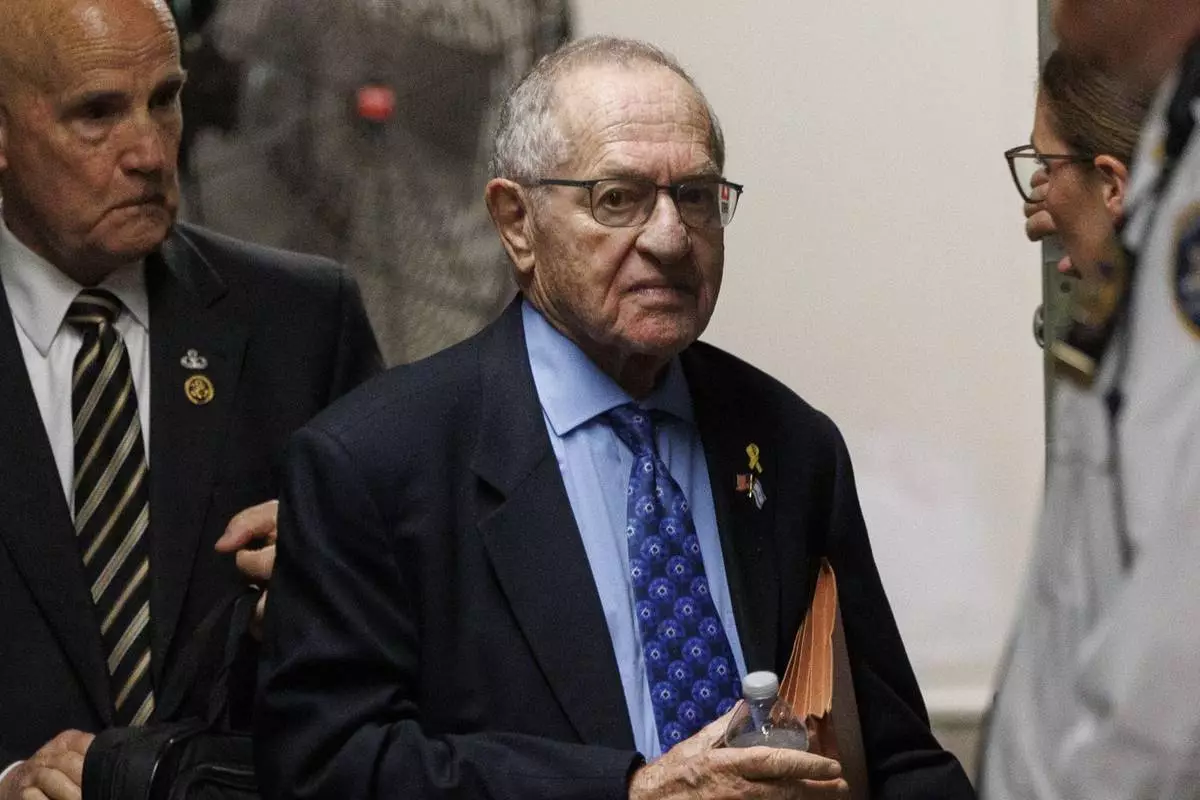
American lawyer Alan Dershowitz returns to the courtroom for the criminal trial of former President Donald Trump after a short break at the municipal criminal court in Monday May 20, 2024 in New York. (Sarah Yenesel/Pool Photo via AP)

American actor Chuck Zito returns to the courtroom for the criminal trial of former President Donald Trump after a short break at the municipal criminal court in Monday May 20, 2024 in New York. (Sarah Yenesel/Pool Photo via AP)

Former President Donald Trump walks with attorney Todd Blanche after a break during his trial at Manhattan Criminal Court on Monday, May 20, 2024 in New York. (Michael M. Santiago/Pool Photo via AP)

Former President Donald Trump speaks to members of the media before entering the courtroom with his attorney Todd Blanche at Manhattan Criminal Court on Monday, May 20, 2024 in New York. (Michael M. Santiago/Pool Photo via AP)

Former President Donald Trump sits in Manhattan Criminal Court on Monday, May 20, 2024 in New York. (Michael M. Santiago/Pool Photo via AP)
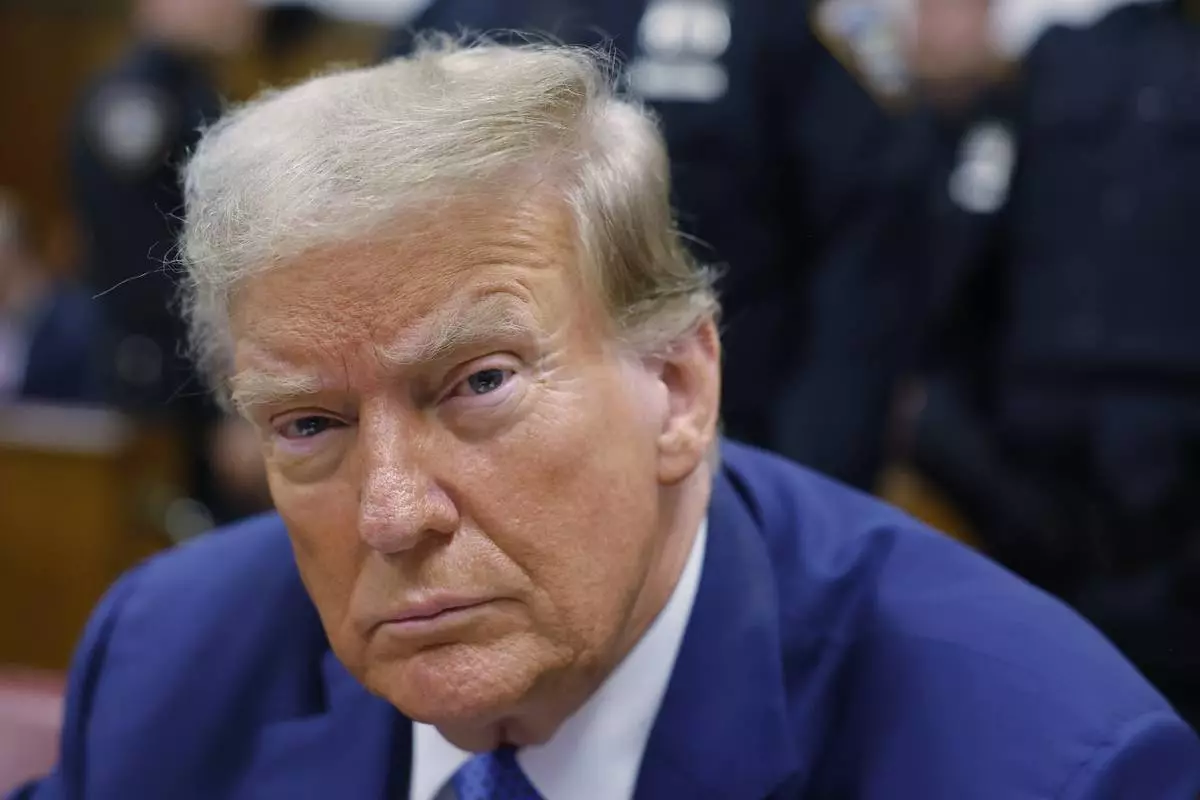
Former President Donald Trump appears at Manhattan Criminal Court on Monday, May 20, 2024 in New York. (Michael M. Santiago/Pool Photo via AP)
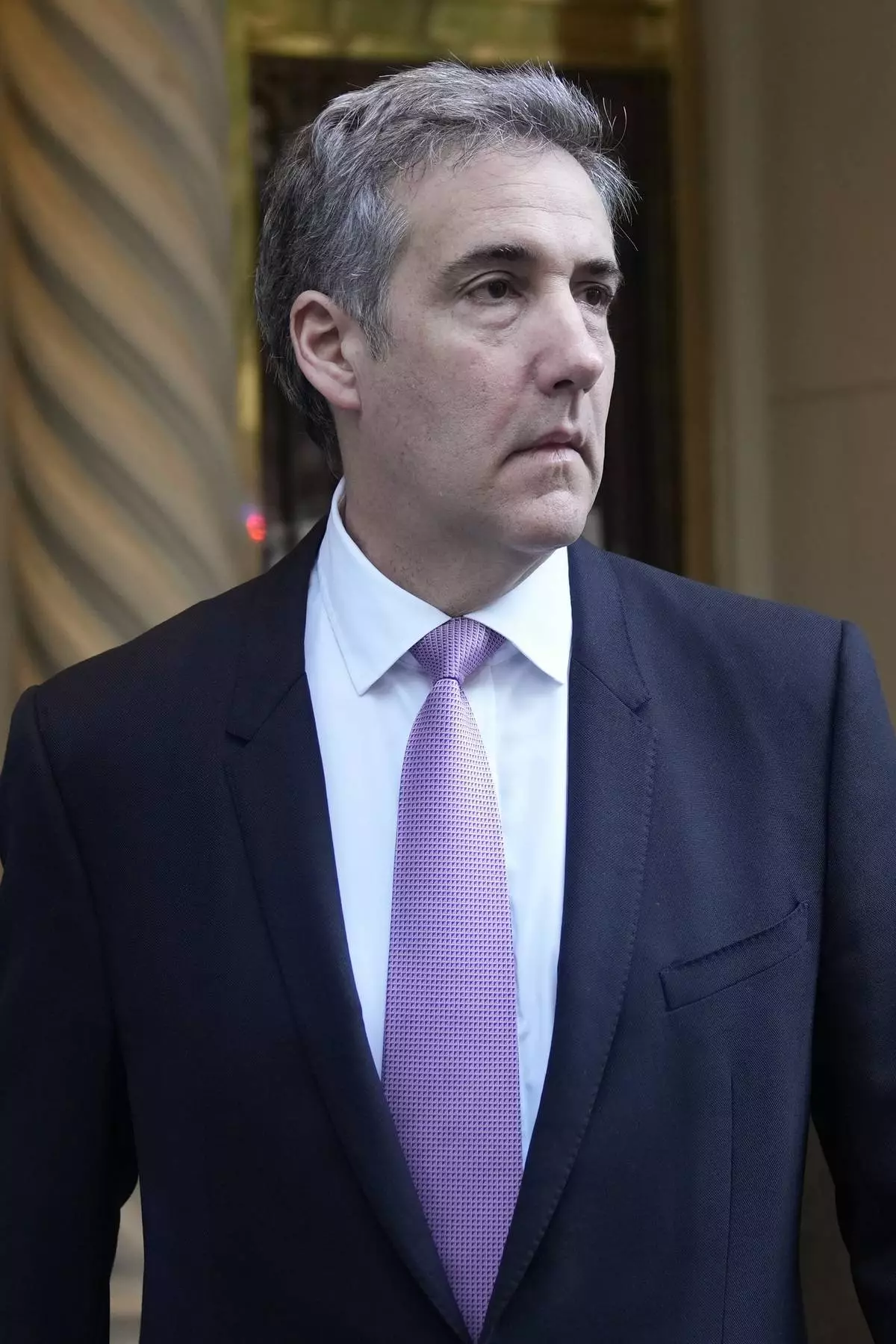
Michael Cohen leaves his apartment building on his way to Manhattan criminal court in New York, Monday, May 20, 2024. (AP Photo/Seth Wenig)

Michael Cohen leaves his apartment building on his way to Manhattan criminal court in New York, Monday, May 20, 2024. (AP Photo/Seth Wenig)
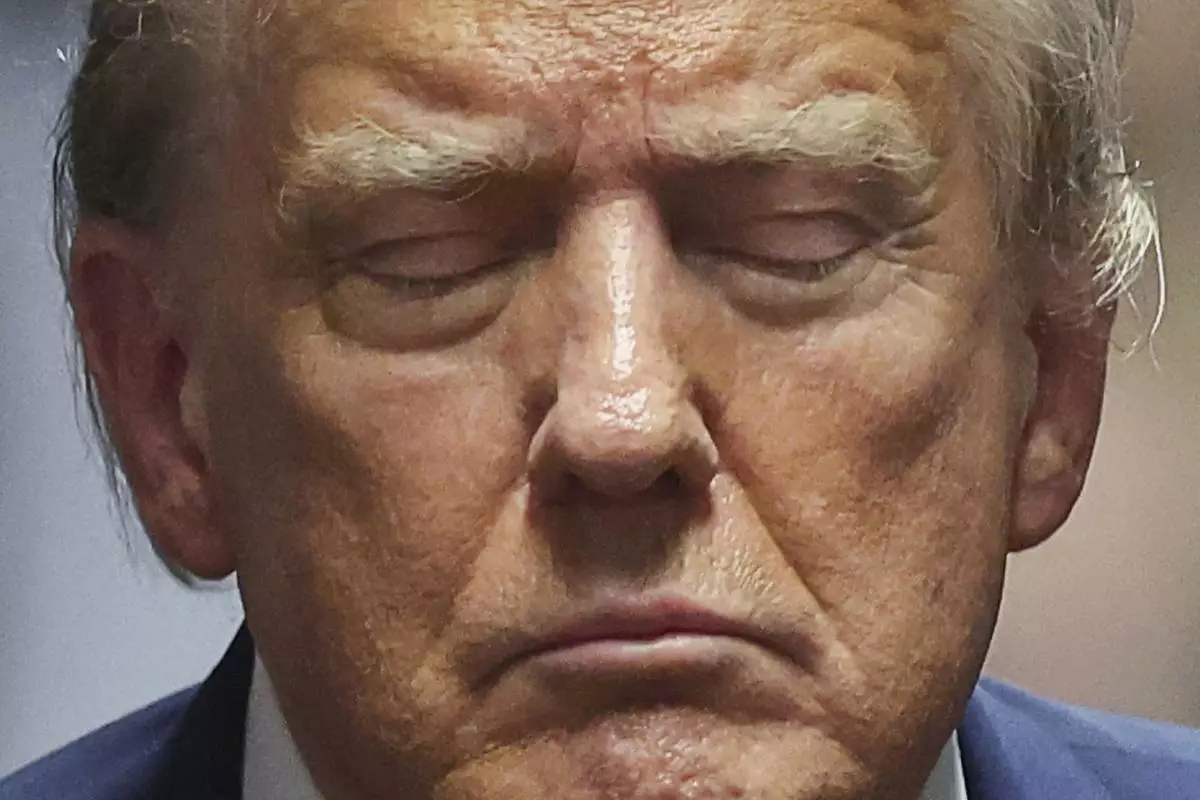
Former President Donald Trump closes his eyes, during his trial at Manhattan criminal court Thursday, May 16, 2024, in New York. (Mike Segar/Pool Photo via AP)
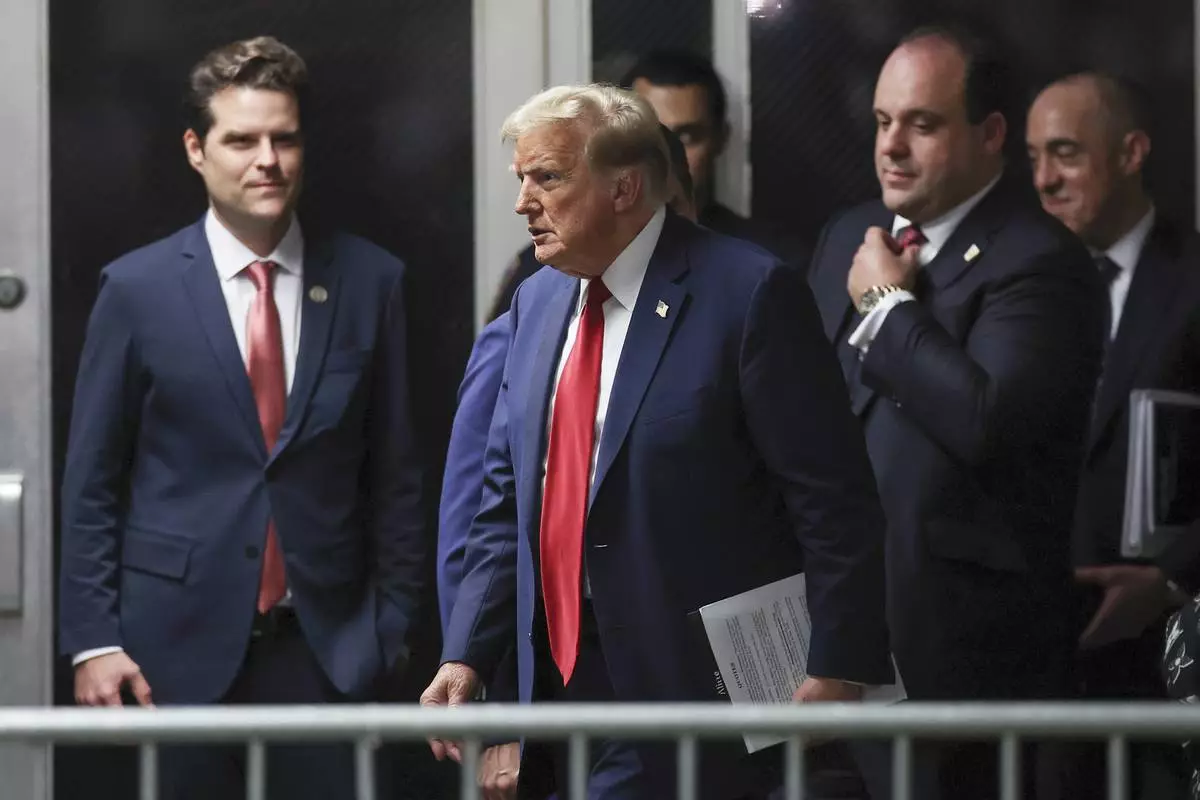
Former President Donald Trump, center, walks by Rep. Matt Gaetz, left, R-Fla., outside the courtroom after the day's proceedings in his trial Thursday, May 16, 2024, in New York. Trump's adviser Boris Epshteyn, and attorney Emil Bove, right, follow behind him. (Mike Segar/Pool Photo via AP)

FILE - Michael Cohen leaves his apartment building on his way to Manhattan criminal court, May 13, 2024, in New York. Donald Trump's hush money trial is heading into the final stretch. The landmark trial will kick back off Monday, May 20, in Manhattan with more defense cross-examination of former Trump attorney Cohen. Cohen's pivotal testimony directly tied Trump to the alleged hush money scheme. Defense lawyers are trying to paint Cohen as a serial fabulist who is on a revenge campaign against the presumptive Republican presidential nominee. (AP Photo/Julia Nikhinson, File)
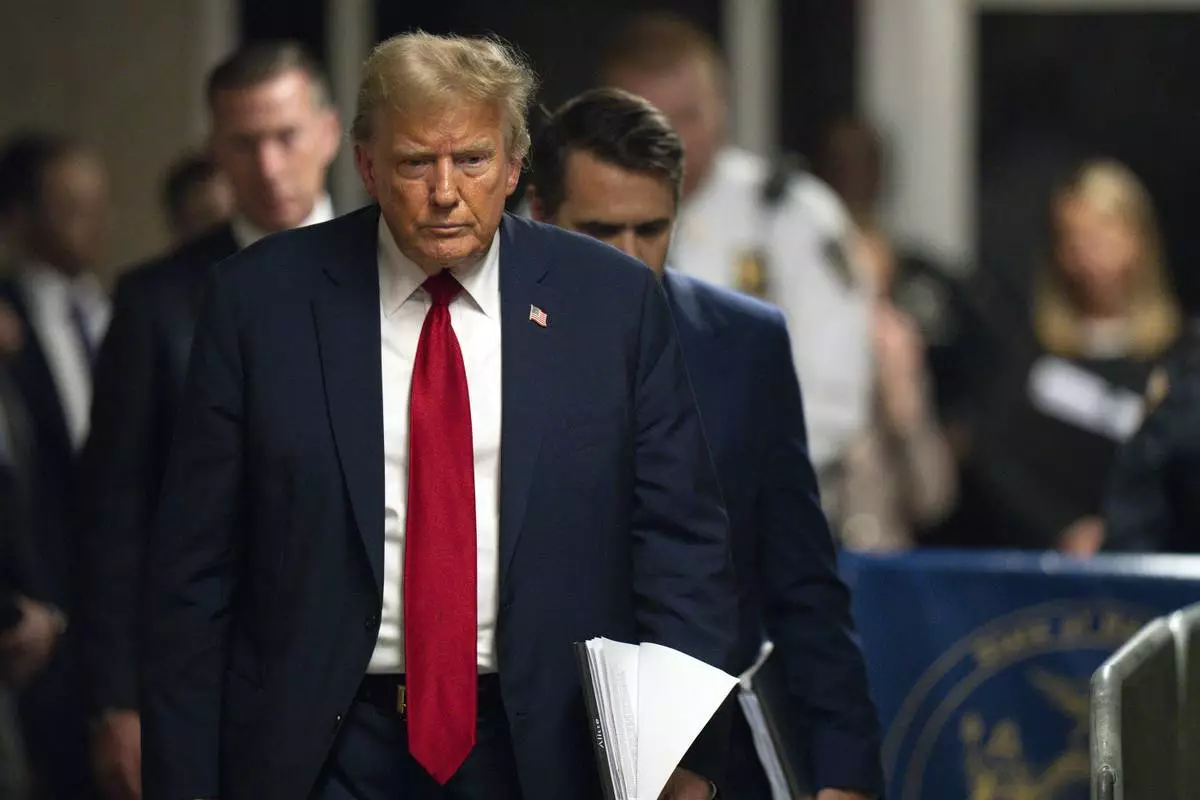
Former President Donald Trump walks over to addresses reporters following the day's proceedings in his trial at Manhattan criminal court in New York, Thursday, May 16, 2024. (Steven Hirsch/New York Post via AP, Pool)





